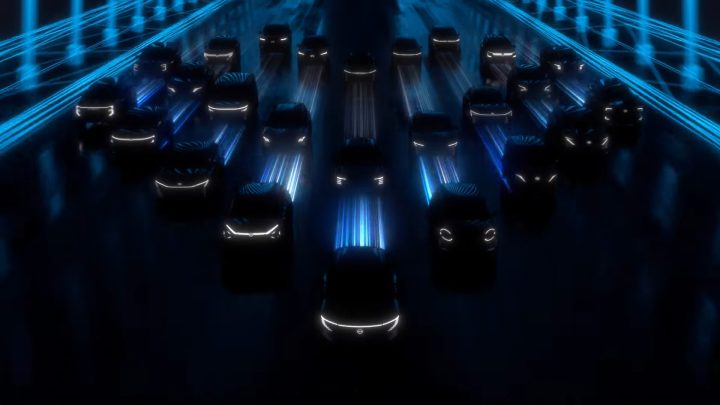
Nissan has just laid down a tough gauntlet by announcing its ARC business plan. ARC is basically the brand’s plans and goals for the next few years until 2030.
What has us interested is the ambition to launch a whopping 30 new models.
Nissan ARC Business Plan
Table of Contents
Nissan plans to launch 30 new models over the next three years, of which 16 will be electrified, and 14 will be ICE models, to meet the diversified customer needs in markets where the pace of electrification differs. Nissan plans to launch a total of 34 electrified models from fiscal year 2024 and 2030 to cover all segments, with the model mix of electrified vehicles expected to account for 40% globally by fiscal year 2026 and rise to 60% by the end of the decade.
Ensuring market growth through a tailored regional strategy
In key regions and markets, Nissan’s actions by fiscal year 2026 (unless otherwise indicated) include:
Americas:
- Increase across-region sales by 330,000 units (in fiscal year 2026 and compared to fiscal year 2023) and invest 200 million USD in integrated customer experience in the U.S.
- In the U.S. and Canada: Launch seven all-new models
- In the U.S.: Refresh 78% of passenger vehicle line-up for Nissan brand and launch e-POWER and plug-in hybrid models
China:
- Refresh 73% of Nissan-brand models and launch eight new-energy vehicles (NEVs), including four Nissan-branded models
- Target 1-million-unit sales in fiscal year 2026, representing an increase of 200,000 units
- Start vehicle exports in 2025; Aim for 100,000 unit level
- Continue to optimize production capacity with local partners
Japan:
- Refresh 80% of passenger model line-up, launching five all-new models
- Achieve a 70% electrified level in passenger vehicle line-up
- Increase sales by 90,000 units (compared to fiscal year 2023) to 600,000 units in fiscal year 2026
Africa, Middle East, India, Europe and Oceania:
- Increase across-region sales units by 300,000 units (in fiscal year 2026 and compared to fiscal year 2023)
- In Europe: Launch six all-new models; achieve 40% EV passenger-vehicle sales mix
- In the Middle East: Launch five all-new SUVs
- In India: Launch three all-new models and become a hub for exports, at a level of 100,000 units
- In Oceania: Launch a 1-ton pickup and introduce a C crossover EV
- In Africa: Launch two all-new SUVs and expand A-segment ICE vehicle
EV competitiveness
The product offensive will be supported by new development and manufacturing approaches aimed to make EVs more affordable and increase profitability. By developing EVs in families, integrating powertrains, utilizing next-generation modular manufacturing, group sourcing, and battery innovations, Nissan aims to reduce the cost of next-generation EVs by 30% (when compared to the current model Ariya crossover) and achieve cost-parity between EVs and ICE models by fiscal year 2030.
In the area of family development alone, the cost of subsequent vehicles – those developed based on the main vehicle in the family – can be reduced by 50%, the variation of trim parts reduced by 70% and development lead time shortened by four months. By adopting modular manufacturing, the vehicle production line will be shortened, reducing the production time per vehicle by 20%.
Under the Arc plan, more plants in Japan and overseas will adopt the Nissan Intelligent FactoryOpens in a new tab. concept, with the Oppama and Nissan Motor Kyushu plants in Japan, the Sunderland Plant in the UK and Canton and Smyrna plants in the U.S. starting the adoption from fiscal year 2026 through 2030. Meanwhile the EV36ZeroOpens in a new tab. production approach will be extended from Sunderland in the UK to plants including Canton, Decherd and Smyrna in the U.S., and Tochigi and Kyushu in Japan from fiscal year 2025 through 2028.
New technologies
The plan includes proposals to accelerate the evolution of vehicle intelligence technologies such as next-generation ProPILOT driver-assistance system, which realize door-to-door autonomous driving technology from on-highway to off-highway, private premises, and parking.
Nissan will offer enhanced NCM li-ion, LFP and all solid-state batteries to provide diversified EVs to meet different customer needs. Nissan will significantly enhance NCM li-ion batteries, reducing quick-charging time by 50% and increasing energy density by 50% compared to the Ariya. LFP batteries, to be developed and produced in Japan, will be launched that will reduce cost by 30% compared to the Sakura EV minivehicle. New EVs with enhanced NCM li-ion, LFP and all-solid-state batteries will be launched in fiscal year 2028.
Strategic partnerships
Nissan will harness strategic partnerships to stay competitive and offer a global portfolio of products and technology. Nissan will continue to leverage the alliance with Renault and Mitsubishi Motors in Europe, LATAM, ASEAN and India. In China, Nissan will fully utilize its local assets to meet the needs of China and beyond; and explore new partnerships in Japan and the U.S. Batteries will be developed and sourced with partners to bring 135 gigawatt hours of global capacity.




